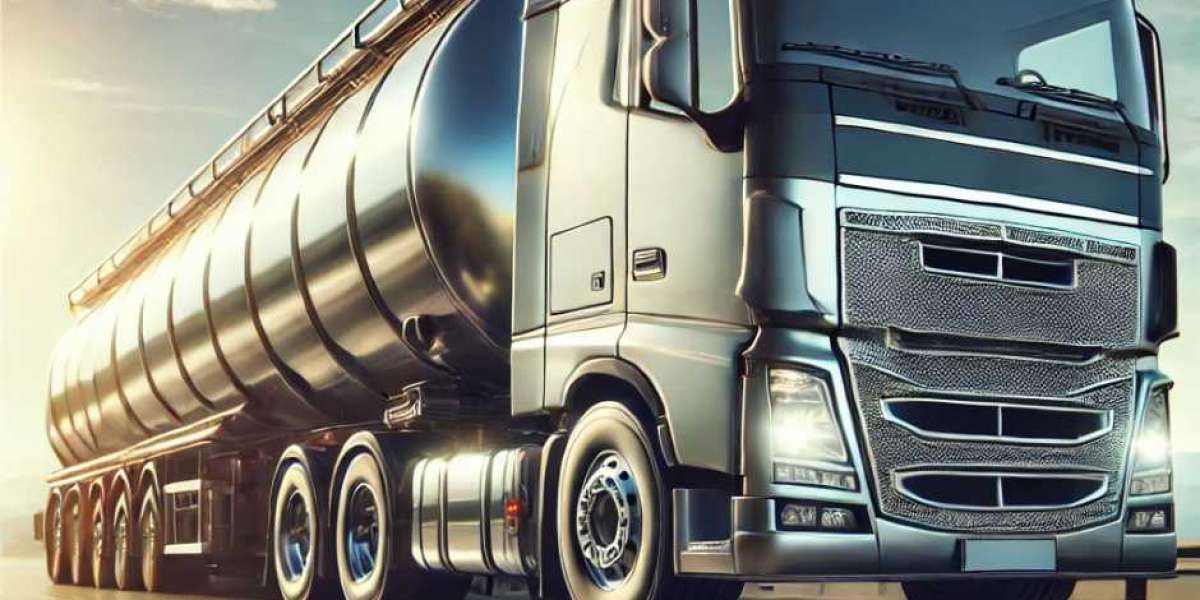Market Overview
The Europe electric trucks market is undergoing a remarkable transformation, driven by a powerful combination of regulatory pressures, environmental consciousness, and technological innovation. Electric trucks, powered by batteries or hydrogen fuel cells, are increasingly being adopted across logistics, construction, and municipal services sectors to decarbonize road freight and reduce urban pollution.
As of 2024, the European electric truck market is valued at approximately USD 1.8 billion and is projected to grow at a CAGR of over 35%, reaching USD 10 billion by 2030. This growth is being fueled by ambitious European Union (EU) climate goals, including the European Green Deal and Fit for 55 package, which target a 55% reduction in greenhouse gas emissions by 2030 and carbon neutrality by 2050.
Countries like Germany, France, the Netherlands, and the Nordics are leading in the deployment of electric trucks, while original equipment manufacturers (OEMs) such as Volvo Trucks, Daimler Truck, Renault Trucks, Scania, and MAN are accelerating the development of electric truck models to meet demand.
Market Trends
The European electric truck market is being shaped by several pivotal trends that are transforming commercial transportation across the region:
- Zero-Emission Zones and Urban Regulations
Many European cities are establishing Low Emission Zones (LEZs) and Zero-Emission Zones (ZEZs), banning diesel trucks from urban cores. This regulatory shift is driving fleet operators to transition to electric trucks, particularly for last-mile and urban deliveries.
- Advancements in Battery Technology
Improved battery energy density, faster charging capabilities, and falling battery costs are making electric trucks more viable for medium- and long-haul routes. Battery prices have dropped by more than 80% over the past decade and are projected to decline further.
- OEM Commitment to Electrification
Truck manufacturers are committing to all-electric portfolios. Volvo Trucks has pledged that 50% of its truck sales will be electric by 2030, while Daimler Truck plans to stop selling fossil-fuel trucks in Europe by 2039.
- Government Incentives and Green Recovery Plans
Governments across Europe are offering subsidies, tax incentives, and funding programs to support the purchase of electric trucks and the development of charging infrastructure. The EU’s Recovery and Resilience Facility is channeling billions of euros into green transport projects.
- Development of Charging and Hydrogen Infrastructure
Public and private investment is rapidly expanding charging stations for electric trucks, particularly at logistics hubs, depots, and along highways. Additionally, interest in hydrogen fuel cell trucks is growing for long-haul applications, with countries like Germany and the Netherlands investing in hydrogen corridors.
- Fleet Electrification by Logistics Companies
Major logistics players such as DHL, UPS, DB Schenker, and DPD are incorporating electric trucks into their fleets to meet ESG targets and reduce carbon footprints. This fleet transition is fueling market demand and encouraging OEMs to scale production.
Regional Analysis
Germany
Europe’s largest truck market and logistics hub.
Strong government support through funding programs like KsNI.
Leading players like Daimler Truck and MAN based here.
France
Aggressively pushing for low-emission transportation.
Renault Trucks spearheading the development of electric medium-duty trucks.
Growing deployment of electric trucks for municipal services.
United Kingdom
Striving for net-zero emissions by 2050.
Active pilots for electric freight routes and heavy-duty charging infrastructure.
Local firms trialing hydrogen-electric trucks for longer distances.
Netherlands
Pioneer in ZEZs and sustainable urban logistics.
Rapid deployment of electric delivery trucks in Amsterdam, Rotterdam, and Utrecht.
Strong ecosystem for battery electric vehicle charging.
Nordic Countries (Sweden, Norway, Finland)
High EV adoption rates and strong climate policies.
Volvo Trucks and Scania based in Sweden are exporting electric trucks across Europe.
Government subsidies and high renewable energy share enable efficient electric freight.
Eastern Europe
Slower adoption but growing interest driven by EU funding.
Poland and Hungary showing early signs of electric truck pilots.
Infrastructure gaps remain a challenge.
Future Scope and Opportunities
The future of the electric truck market in Europe is promising, with ample opportunities for growth and innovation across several segments:
- Medium and Heavy-Duty Long-Haul Electric Trucks
With battery performance improving, electric trucks are now being designed for long-haul routes. Companies like Volvo and Daimler are developing vehicles capable of 300–500 km on a single charge, opening new market segments.
- Hydrogen Fuel Cell Trucks
For routes requiring higher payloads and longer ranges, hydrogen fuel cell electric trucks offer an attractive solution. EU-backed initiatives are fostering cross-border hydrogen refueling networks, creating new opportunities for OEMs and fuel providers.
- Digital Fleet Management Solutions
Connected electric trucks enable real-time fleet optimization, predictive maintenance, and energy monitoring. Software companies and telematics providers can leverage this data-driven shift to offer value-added services.
- Public-Private Partnerships for Charging Infrastructure
Collaborative models between governments, energy providers, and fleet operators are crucial for building high-power charging networks. These partnerships represent a key growth area for infrastructure players.
- Retrofits and Modular Platforms
Startups and engineering firms can capture market share by offering retrofit kits and modular electric truck platforms that enable diesel truck conversion or custom configurations for different applications.
- Local Manufacturing and Supply Chain Localization
As demand grows, there’s opportunity for EU-based battery, drivetrain, and component manufacturers to localize production, reducing dependency on external suppliers and creating jobs in the green economy.
Recent Developments
Volvo Trucks began series production of its FH, FM, and FMX electric trucks in 2023 and has delivered to logistics companies in over 20 European countries.
Mercedes-Benz eActros 600, a long-haul electric truck by Daimler Truck, is undergoing real-world testing with plans for full production in 2025.
Renault Trucks launched its E-Tech T and C series for urban construction and regional transport applications in 2024.
Iveco partnered with Hyundai Motor Company to explore fuel cell electric truck development and production in Europe.
Tevva, a UK-based startup, rolled out its hydrogen-electric trucks for trials with logistics firms in the UK and mainland Europe.
EU's Alternative Fuels Infrastructure Regulation (AFIR) mandates the rollout of electric truck charging stations every 60 km on core corridors of the Trans-European Transport Network (TEN-T) by 2030.
Challenges
Despite rapid progress, the European electric truck market faces several challenges that need to be addressed:
- High Initial Costs
Electric trucks can cost up to 2–3 times more than diesel alternatives, especially for heavy-duty segments. Although operational savings are significant, the high upfront investment is a barrier for many small and medium fleet operators.
- Limited Charging Infrastructure
Europe still lacks sufficient high-capacity charging infrastructure tailored for heavy-duty trucks, particularly on long-haul routes. Range anxiety and charging downtime are major concerns.
- Payload and Range Trade-Offs
Battery weight can reduce payload capacity, which is critical for logistics efficiency. Additionally, even with improved range, electric trucks are still less suited for long-distance routes in some regions.
- Grid Capacity and Energy Supply
Widespread electrification of commercial fleets places additional demand on national grids. Coordination with utility companies and smart charging solutions is essential to prevent grid overloads.
- Skilled Workforce and Maintenance Readiness
Technicians, drivers, and fleet managers require new training to handle electric trucks, diagnose EV systems, and safely operate high-voltage components.
Conclusion
The Europe electric truck market is entering a transformative era, aligned with the continent’s broader climate goals and digital mobility transition. While still at a nascent stage compared to electric passenger vehicles, the pace of progress in electric commercial transport is accelerating.
As regulations tighten and sustainability pressures mount, electric trucks offer a path to cleaner, quieter, and more efficient freight movement. OEMs, fleet operators, governments, and infrastructure providers must work in tandem to overcome challenges and unlock the full potential of electrified trucking.
With innovation driving costs down and infrastructure expanding, Europe is well-positioned to become a global leader in electric truck adoption—paving the road to a zero-emission logistics future.
Europe Automobile Industry Market
Europe Automotive Sensors Market
Europe Electric Vehicles Market







